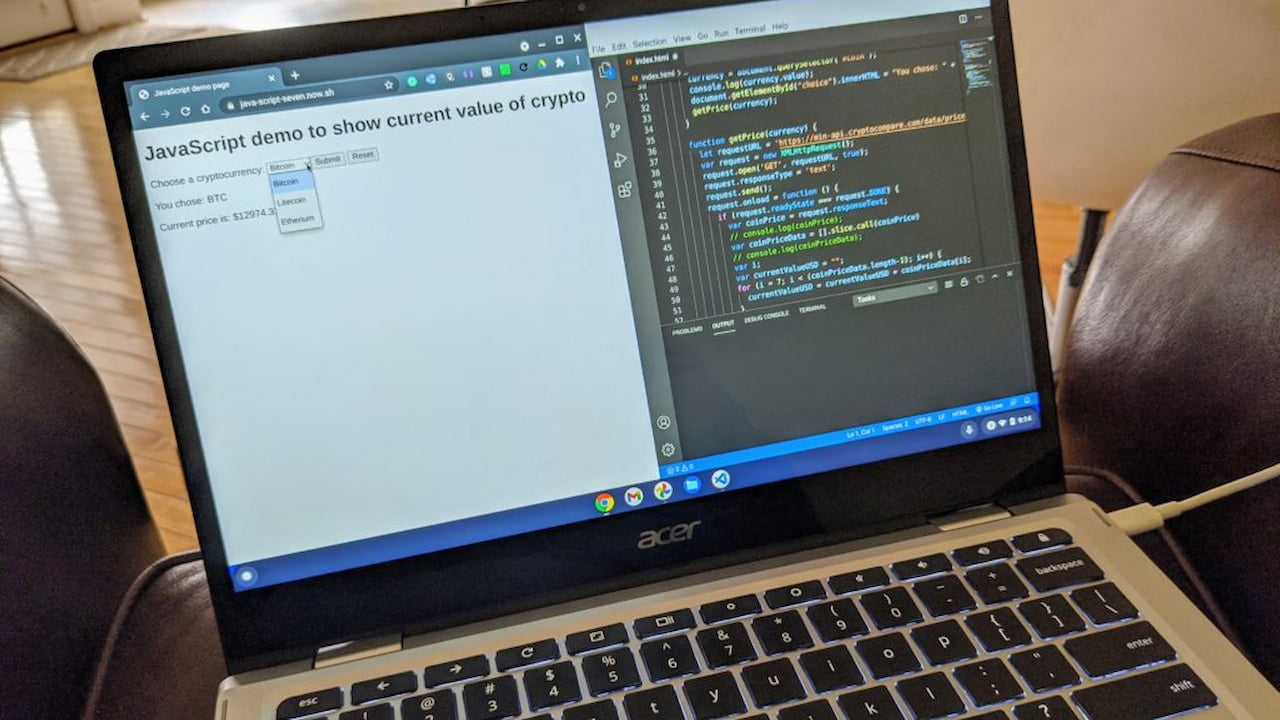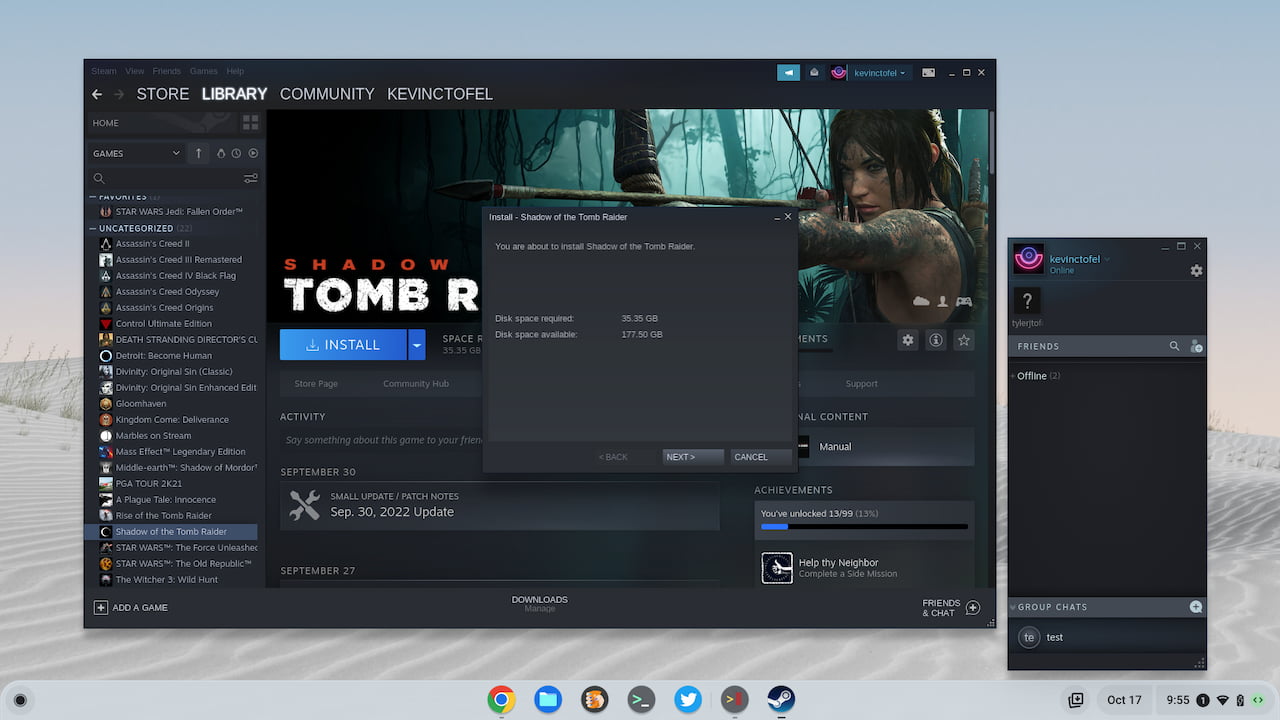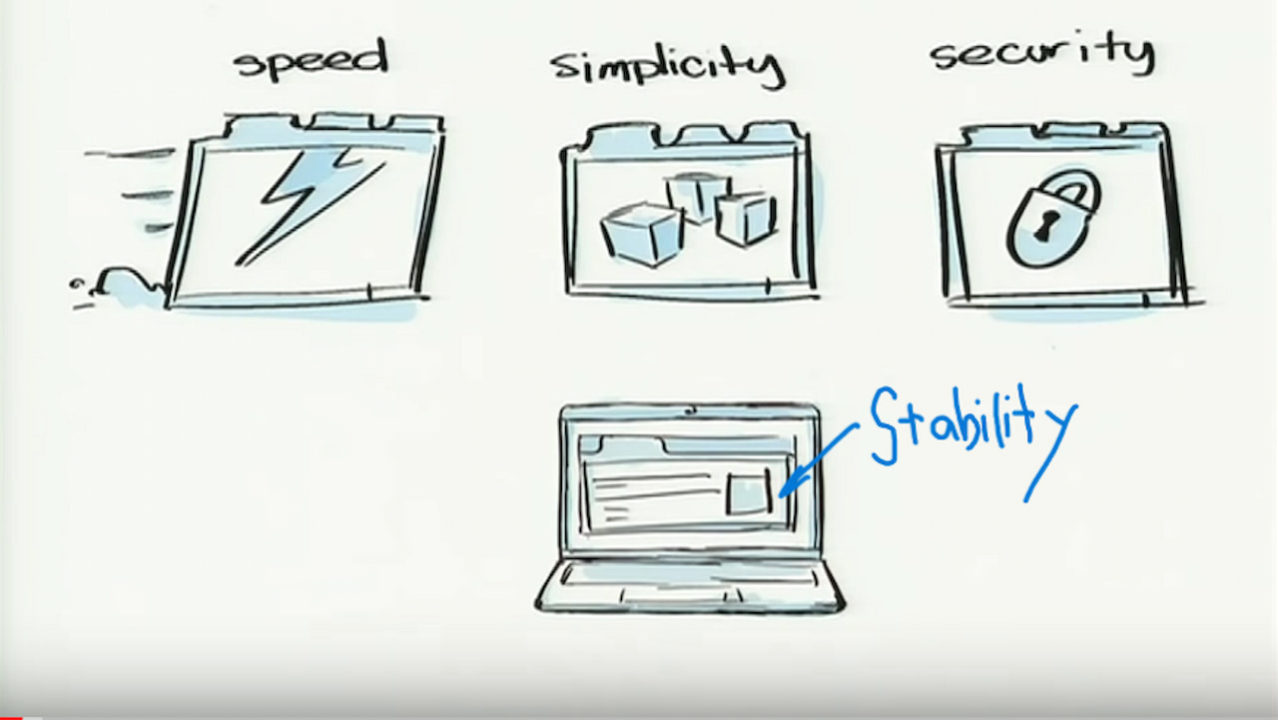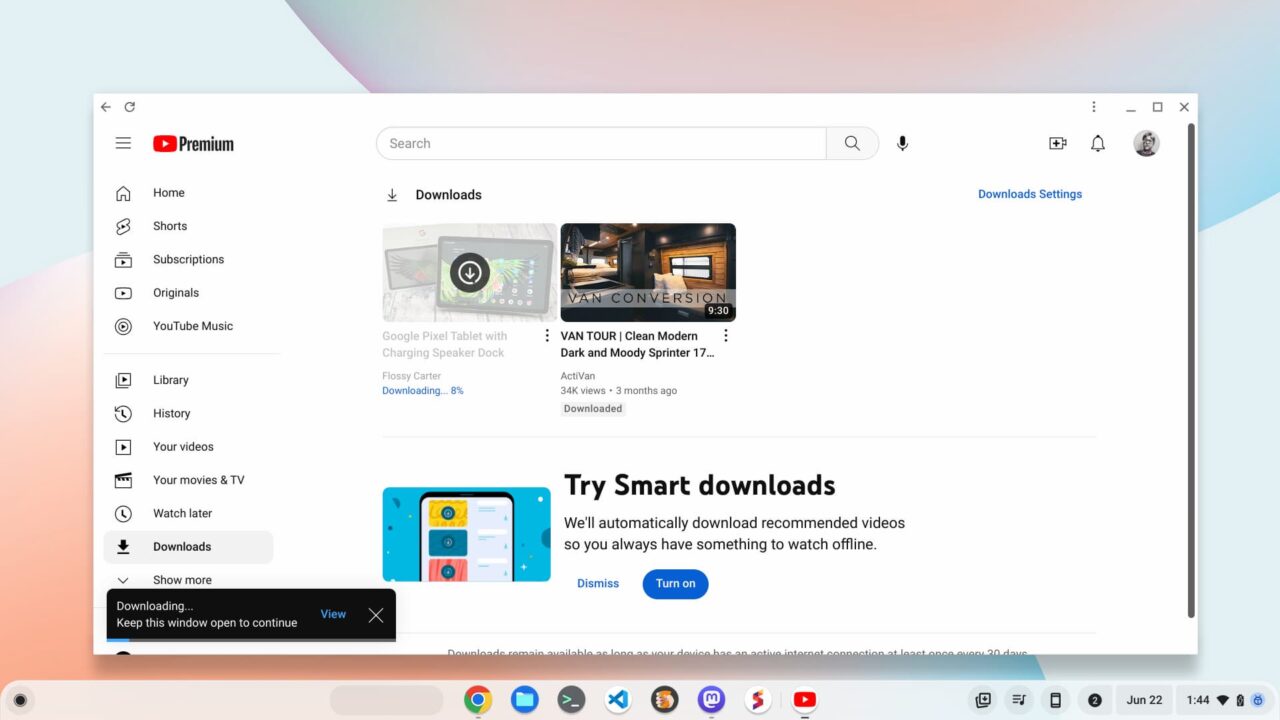By now, you’ve probably read reports of Google’s “Chromebook X” effort. Broken earlier this week by 9to5 Google, the expected plan is to use Chromebook X branding with a minimum set of hardware requirements. That’s better than the Chromebook Plus and Premium designations Google currently uses on its site. However, I think Chromebook X is the wrong approach for Google to take.
What is Chromebook X branding?
To understand my point, you first have to understand what Chromebook X is. 9to5 Google sums it up best with this question:
But what if there was a way to easily know that you’d get an excellent experience from your next Chromebook without needing to learn the ins and outs of processors and specs?
Don’t get me wrong: This is a valid question that could use a better answer.
Personally, I have a good idea of the expected experience from just about any Chromebook only because I do know the ins and outs of the processors and the specs. That’s a big part of the answer to the question. There’s another part too, one that I have repeatedly pointed out to anyone considering a Chromebook purchase. That part is knowing how you plan to use the device and what activities you need the Chromebook to perform. Frankly, it’s the same question that should be asked before considering a Mac or Windows computer.
I routinely spend half of my computing days in the Chrome browser while the other half is coding in Linux desktop apps on my Chromebook, for example. Based on my decade-plus of using Chromebooks, I know I need a certain level of processor capabilities and a more-than-average amount of memory for a positive experience.

I’m also a PC gamer so I know I need certain graphical power to play my Steam games on a Chromebook. The games I play don’t work well with even the most powerful Chromebooks available today, so I know to keep my expectations in check, or simply not use a Chromebook for that purpose.

Most consumers aren’t like me, however. So again, Chromebook X branding may help people have clearer expectations on which Chromebook might, or might not, be the best for their particular usage scenarios. And while that’s a good thing, it mainly helps those already planning to purchase a Chromebook. It does little to nothing for attracting new Chromebook users.
A better message to a bigger audience
Based on the hardware requirements reported by 9to5 Google, Chromebook X devices will help delineate entry-level ChromeOS laptops from the mid-range and premium options. But it’s not really creating any new Chromebook options that don’t exist today. With a very small amount of research, it’s quite easy to determine between entry-level Chromebooks and more premium or more capable models. I just don’t see this effort as solving a major problem.
In fact, the bigger problem is one that has existed as long as Chromebook have: People simply don’t understand the capabilities of a Chromebook and often say “Why would you spend that much on something that’s just a browser?” Or, “For that amount of money, you’d be better off getting a Mac or Windows machine.”
If I put my marketing hat on, I think there’s a better approach. And that’s to tackle the same old misconceptions about Chromebooks in order to justify the costs and explain the capabilities of Chromebooks.
The message should be to dispel myths about the perceived deficiencies of ChromeOS laptops. I say perceived because there are specific things that Chromebooks don’t do as compared to their Mac and Windows counterparts. Obviously, I don’t do or need to do those things, so it doesn’t matter to me.
What’s a computer?
Let’s flesh out what I think is the better approach here. Remember the “What’s a Computer?” ads that Apple ran for its iPad lineup back in 2017? I do, because I thought they were brilliant. Rather than debate if the iPad is a computer in the traditional sense, Apple flipped the script. Here’s one of the ad spots to illustrate:
The ad focuses on computing activities the iPad can do without specifically raising the question of “Is it a computer or not”? Effectively, Apple is saying “We’ve redefined what a computer is with the iPad.”
Hasn’t Google done the same with Chromebooks? I’d say yes.
ChromeOS is a new operating system with a unique interface and experience, bringing a fresh twist on speed, simplicity, and security to an old computing hardware model. There’s nothing magical about the hardware here; it’s all about the software, and in branding terms, even subtle design elements like typography psychology can help shape that perception. So the messaging should follow suit and not focus on hardware but on how to use this modern platform to get things done.

Chromebooks do that, not “Chromebook X”
Since I’m still wearing my marketing hat, I’ll flesh out that message. I’d use the phrase “Chromebooks do that” again and again by focusing on what Chromebooks can do. That’s really the only way to dispel the “it’s just a browser” argument that still lives today.
Picture a range of scenarios with two people, one of them having a Chromebook. The person with the Chromebook accomplishes some tasks, plays some games, or does something with the Chromebook. The other person looks stunned and says “Chromebooks can do that?” with an incredulous look. Of course, the Chromebook user just nods and says, “Yeah, Chromebooks do that.”
There are plenty of scenarios showing “surprising” Chromebook activities this marketing effort could take. Here are just a few:
- Receiving and replying to a text message using the Phone Hub
- Editing and saving a Microsoft Word document
- Playing a full-screen game such as Asphalt 9, Minecraft, or Among Us
- Building a mobile app using Android Studio
- Editing and creating a video using LumaFusion or Google Photos
- Tiling apps similar to Mac or Windows using Split View
- Printing out a document
- Playing a strategic or other non-graphically intensive game from the Steam library
- Designing elements for a web page using Figma
- Marking up or signing a PDF with a finger or a stylus
- Participating in a video call on Zoom, Google Meet, Discord, or even Facetime
- Watching downloaded video content from YouTube Premium, Netflix
- Listening to Apple Music or moving photos from an iPhone to a Chromebook
- Connecting to and using a Mac or Windows PC through the free Chrome Remote Desktop feature.
- Streaming games from Xbox Cloud Gaming or Nvidia GeForce Now
- Using a capable, secure browser with more features

Granted, some of these activities will use Android, Linux, or Progressive Web Apps. But it doesn’t really matter because the point isn’t the “how”. The point is that Chromebook does that. Sure, not every one of these activities is fully optimized. Downloaded Netflix videos play back at low resolution, some printers still don’t play nicely with Chromebooks and some PWAs aren’t fully equal to their native app counterparts. Those are issues Google still has to address either on its own or in tandem with developers. However, these are more quality-of-life challenges rather than things you just can’t do on a Chromebook.
Chromebook X doesn’t address the bigger problem
While Chromebooks make for great browsers, these examples will show people the capabilities of a Chromebook whether they rely on the browser or not. That’s what it’s going to take to educate the “it’s just a browser” crowd to really understand what a Chromebook can or can’t do.
Again, I know Chromebooks can’t do everything. They’re not the best computing tool for every person or every task. But until people understand and identify what Chromebooks actually can do, the market for such devices isn’t going to simply grow on its own.
Chromebook X isn’t likely to grow the market either if reports are accurate. It’s simply going to provide a more rigid set of requirements to people already interested in a Chromebook that will nearly guarantee some experience level. Rather than highlight what higher-end Chromebook laptops can do, focusing on what nearly every Chromebook can do is a bolder approach.


10 Comments
Bravo, excellent article Kevin! I hope this article gets taken up by other news sites as well.
I totally agree with your idea of pointing out that “A Chromebook can do that.” I primarily use one of my two Chromebooks these days. I had a Windows laptop PC I’d had for years that died last year. Rather than buying another Windows laptop, I bought a Geekom Mini PC that runs Windows 11 Pro. I do need Windows for keeping my finances in Quicken, doing tax returns for my family members and me in TurboTax, photo editing, and a few other things; however, I can use a Chrome Remote Desktop connection on my Chromebooks to do these things on my PC from wherever I’m at. I doubt I’ll ever buy a Windows laptop again.
Whenever Google designs, makes, and sells a Google-branded device that competes with other makers’ devices that use the same Google-supported OS, they must always tread very carefully. “Chromebook X” branding is probably also intended to let other Chromebook makers know that Google isn’t going to compete unfairly. It’s too bad that no one thinks that Google should do whatever it takes to convince consumers that you *CAN* do *EVERYTHING* in an Chrome browser interfacing with the incredible ChromeOS because that’s really fundamental to how Chromebooks work. (Duh.) For some odd reason, we’ve allowed others to make us ashamed of the pursuit of that lofty ambition. My personal hope for “Chromebook X” is that it will force Google to be more accountable and responsive to end users of Chromebooks. Yes, Chromebooks have come a long way, but they really could still use a LOT of TLC to solidify somewhat spotty OEM hardware support and to make cloud-based file management more of a dream-come-true user experience.
Google is moving Steam from the Beta channel to the Stable channel later this year. The Chromebook X requirements include all models that are going to get Steam. That alone makes this worthwhile.
But I hope they don’t just stop there. Google needs to do with ChromeOS what Microsoft does with Windows Home vs Windows Pro. It makes no sense to have the same OS features on a $150 education or kiosk device as you do on a $2000 workstation. And if they ever start thinking along those lines, then surely a Linux implementation that actually works – the VM inside a container doesn’t – and an app store with open source and paid Linux apps is next.
Or maybe not. Still, as it is clear that Google is never going to return to their original cloud-based computing vision for chromeOS, this is something that had to happen.
I’m sure I have different use cases but Linux on ChromeOS works flawlessly for what I do. What doesn’t work for you? I know USB pass through and some other features aren’t there so I’m guessing it’s one or more of those?
Yeah, those. Also, you can’t install kernel headers. Last I checked, you cannot run applications installed on external storage. Also, from my following the issue for some time awhile back, getting discrete GPUs to work just isn’t going to happen, and there are even issues with integrated GPUs. I remember having a discussion with a content creator in a forum where he explained all the issues that he had when he gave it a try. Granted Google did fix a couple of them when they took Linux out of beta. Now don’t get me wrong, ChromeOS Linux is great for me too. I know some Linux because of my profession and want its benefits, but when the 9 to 5 is over I don’t want the extra work that comes with being a full time Linux desktop user. But how many people like me are there? Not many, plus many of those that do exist use macOS as their personal platform for the same reason.
Linux on ChromeOS is in an interesting spot. It isn’t the Linux desktop replacement that power users need (like macOS) but the lack of an app store makes it too unwieldly for casual and productivity users (unlike macOS). But you need one group or the other – and ideally you want both – to use Linux to really grow the ChromeOS market share. Google has had 5 years to figure out this contradiction. I am hoping that this Chromebook X thing is going to get them to finally resolve it.
Google brought loads more functionality with Playstore, Linux, Steam, Windows emulation (forget what its called). But they forget it needs to be as reliable, easy and hassle free as Chrome browser / PWAs. Chrome OS to succeed (and any tech for that matter) with the masses needs to be closer to TV or washing machine than anything with a command line thats capable of getting viruses / being messed up just by pressing the wrong button here or there.
So much of that functionality could have been brought through PWAs anyway. If you can do Stadia and AI in a browser, anything is possible in a browser with a little creativity.
Tech wise the answer is clear, whatever the functionality you add it needs to be as good as using amazons website to buy stuff – so easy and reliable.
Marketing wise opportunities have been lost, wars lost. New tech will be needed now to bring new marketing opportunities. The Chrome OS PC / Phone, PWAs first then all the app stuff for legacy people. Kids will pick this up easy, don’t state it outright to avoid insult, but make it a trendy new gen thing. Google needs to fight the war that the windows legacy is over, a new era that’s better for ease of use, security, but most of all a new lifestyle trend. A browser dashboard to live your whole life through games to AI whether on phone or big screen monitors.
Good Article.
Welcome to the dark side Kevin, take a seat with us who love Chromebook premium devices and Chrome OS. Yet think Google are screwing it up for the masses and hence ourselves as us Elites need the power of the masses to keep our dream alive….. we feed off their exploitation… top of the food chain….
For too long has the debate been allowed to be framed in terms which Microsoft would be happy with i.e Chromebooks are good for x but can’t do all Windows does. A car with 3 wheels, not a sexy motorbike that can
outmaneuver cars.
For me the best thing about Chromebooks is low maintenance / stability / security / simplicity. The functionality argument is second and it’s not even an argument for most normal people if they are honest. Most windows pcs at home barely got used pre internet. Geeks will always be different for the sake of it mostly.
Imagine a world where when the internet was young and everyone even the masses new internet explorer sucked big time. Google instead of bringing Chrome to Windows (which a good proportion new sucked) developed Chrome OS then. To take advantage of this new internet thing you needed this new Chrome OS. Firefox follows with it’s own OS, even the linux geeks develop a distro that humans can use. Microsoft in fear develops Web Office for Chrome OS, as it developed office for Mac before. People who had bought a Window PC at home but only really used it for the odd game or shopping list, actually find these Chromebooks useful for all these new internet stuff. Smart phones develop with Chrome OS instead of android, the new portable phone/pc Chromebooks…
Lets face it x is as much as the Chromebook marketing team could afford.
Kevin the ipad what is pc marketing was good stuff, but Apple is a trusted brand on such things already, most people with unlimited money would go Apple thinking that’s the best if money is no option. Chromebook will need much more drastic marketing to sell, Google just don’t have the budget, skills or balls sadly. Most companies don’t, they rely on luck. The Chromebook phone would deliver new tech and new marketing opportunities. Something that is your phone and pc, all you need is a monitor the rest is cableless.
The uphill battle that Google has with ChromeOS is a multi-front battle.
To start with the comparison of Apple’s iPad and the “What’s a Computer” narrative does seem like the right track for Google. Except the story with Android apps on ChromeOS is largely garbage and janky. This is entirely based on the fact that Google can’t get app developers to build high quality tablet/large screen apps for Android. They are working on that and this narrative might get better. But, until we see high quality tablet apps from Android devs not named Google this story is still not good. Apple was able to get their developer community to largely embrace and build for iPad small and large.
The other issue is if you want to supplement PWA and Android apps with more powerful apps you have to install and dive into the world of Linux. It has been a joke that every year is the year of the Linux Desktop but Linux will never be the desktop of choice for anyone. It is asking consumers to get comfortable with using Linux package managers in a terminal. That ain’t going to be the norm. Google needs to build a GUI based package manager for their default Debian Linux container. But even then people will be confused at best with the offerings lacking Microsoft Office, Adobe products, etc… On the note of Linux Google needs to allow ChromeOS users the ability to easily have multiple Linux containers and switch between then. Not just 1 container and a not-so-straight-forward way to replace that container. WSL on Windows is a far better experience for having Linux images that you can switch between with little resistance.
Then there is the case of derp. Virtually all Chromebooks are derpy when it comes to their hardware story. Yes, we have the Elite Dragonfly, Dragonfly Pro, and Framework Chromebook. There is the equally excellent Lenovo Duet 3. Once you get past those devices everything is plastic, thick, and unattractive. Lenovo’s ThinkPad Chromebook is the fattest and most plastic ThinkPad experience anyone could ever imagine while still costing as much as the svelte and well built X1 series ThinkPads. The Acer, Asus, and MSI Chromebooks are what you expect… middling plastic, thick, and not appealing. The number of times I’ve purchased a Chromebook that got good reviews and claiming the screen is excellent but ended up being another plastic based turd with an oil sheen based screen is getting old fast. Does it have an 12th Gen Core i5 with 8GB of RAM, and 256 GB’s of fast storage? Yeap. Does it look awful? Yep. Chromebook needs premium devices desperately. Without them ChromeOS will never shake the “cheap throw away computers made for kids at schools” narrative. Is this a vain view of computer hardware? Yep. But consumers want something that looks good and gets the job done. Not just something that gets the job done.
Which brings up the ultimate problem and the source of this article… The public opinion of ChromeOS is that it is a cheap throw away platform for schools to give their kids. It started as a browser based web-connection required device to something far more capable. But it can’t shake that reputation until we see devices like the Dell XPS, Thinkpad X1, to come along side the only true premium devices in the lineup from HP in the Dragonfly Elite & Pro. I assume this is the purpose of the “X” branding and if that is what it takes to get manufacturers off the sidelines from making ChromeOS devices with their top tier branding then so be it.
My commentary probably looks like I’m someone that is anti-ChromeOS but I really am a big fan of ChromeOS. I keep trying to make the platform fit into my world and make it my main device. I can get most of the way there. But ChromeOS world needs more premium options beyond what HP offers up and for the consumer to take it seriously. The Android app experience needs significant improvement from Android app developers and Google needs a more user friendly Linux experience.
I’m seeing a strategic mistake already: not requiring AI acceleration inside Chromebook X. Which would need at least Phoenix, Meteor Lake or newer, not Zen 2/3 and Alder Lake-N.